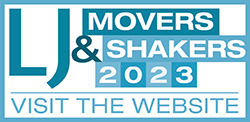Daniel Zeiger | Movers & Shakers 2023—Change Agents
When Daniel Zeiger arrived at Georgia Public Library Service, a major financial and operational challenge faced the state’s library systems—the plethora of individually managed, high-cost, public-access desktop computers. Small library systems were maintaining their own machines with a single IT professional, a tech-savvy director, or no in-house IT at all.
 |
CURRENT POSITIONDirector of Information Technology, Georgia Public Library Service DEGREEBBA, Computer Information Systems, Georgia State University, 2011 FAST FACTZeiger recently learned the ins and outs of hydroponics and now maintains a large indoor vegetable garden. FOLLOWgalibtech.georgialibraries.org; bit.ly/SimplifyingIT-GPLS Photo by Leah Kuenzi |
Cutting-Edge, Low Maintenance
When Daniel Zeiger arrived at Georgia Public Library Service (GPLS), a major financial and operational challenge faced the state’s library systems—the plethora of individually managed, high-cost, public-access desktop computers. Small library systems were maintaining their own machines with a single IT professional, a tech-savvy director, or no in-house IT at all. Zeiger’s solution? The implementation of 400 much more affordable, centrally managed Chromebooks across the state.
He negotiated affordable pricing with Google to shift the state’s public libraries—as well as GPLS—to Google Suite products, saving significant state and local dollars while providing necessary productivity tools.
“I was really excited about outfitting libraries with cutting-edge technology,” Zeiger says. “I saw it as the future of libraries: Providing space, access, and training to patrons in different kinds of emerging technology.”
Today 14,000 devices available statewide include nearly 10,000 Chromebooks and Launchpad learning tablets for patron lending, freeing librarians to focus on programming and services. Zeiger’s Tech Boot Camp offers continuing education, training, networking, and support in a three-day conference for IT staff, or library workers serving in IT roles.
Zeiger also developed a hands-on emerging-technologies learning lab that evolved into a fleet of traveling Tech Loaner Kits. Covering everything from 3-D printing to virtual reality to drones to cybersecurity, these kits can be borrowed by library staff for programming, training, project work, and to make tech available for public use at their library.
“I’ve become really passionate about finding scalable solutions to those kinds of behind-the-scenes problems,” he says.
RELATED
ALREADY A SUBSCRIBER? LOG IN
We are currently offering this content for free. Sign up now to activate your personal profile, where you can save articles for future viewing










Add Comment :-
Comment Policy:
Comment should not be empty !!!